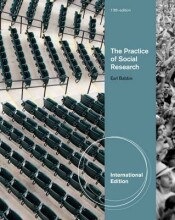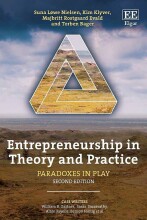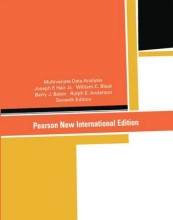The pragmatic inquiring system
8 important questions on The pragmatic inquiring system
What are the key beliefs of pragmatic knowledge and systems?
- 6-7 billion sets of brains can solve wicked problems better than a Nobel Prize winner.
- Democratic knowledge. No differences between expert and amateur
What types/levels of pragmatic knowledge do we have?
- Experience sharing
- trend forecasting (Prediction without a cause)
- Behavior prediction on basis of knowing people's intentions
- Recommendations: Optimum mean-goals
- New product development (NPD) involvement by customers
- Problem-solving by the crowd
What is meant with the sharing of useful experiences as type of pragmatic knowledge.
- Any kind of experience sharing on forums, sites, social media
- Experiences with courses
- Experiences of raising children
- Things of everyday life
- but now reviews
- coping with a disease
- Higher grades + faster learning
- Never study anything twice
- 100% sure, 100% understanding
What is meant with trend forecasting without theory as type of pragmatic knowledge. (Meller et al "The good judgement project")
- 2,200-3,900 participant in three years.
- An illustrative forecasting question was as follows: Will italy's Silvio berlusconi resign, loose reelection etc.
- Forecasters predict the chance that the event would occur (in which 0% = certain it will not occur, and 100% = certain it will occur)
What is a Brier score?
What is meant with Behavior prediction by knowing intentions as type of pragmatic knowledge. (Core ideas and procedures)
- Impact of viral marketing on revenues => week before release and revenue in opening weekend
- Impact of buzz (# of tweets) on revenues => week before release and revenue in opening weekend
Etc.
What is the difference between User experts and reflexive knowledge?
What is meant with recommendations/optimizations as type of pragmatic knowledge.
- Review sites provide authoritive opinions by new forms of expertise in the "authenticity" of the opinions offered.
- TripAdvisor measures, ranks and orders in a systematic fashion.
- Personal trust: It is al based on the benevolence, ability and integrity of the crowd.
- Systems based trust:
- Use of symbolic tokens (popularity index and traveler rating stars)
- Expert systems and calculative practices that transform individual opinions into a number and by this reduce decisional complexity.
The question on the page originate from the summary of the following study material:
- A unique study and practice tool
- Never study anything twice again
- Get the grades you hope for
- 100% sure, 100% understanding































